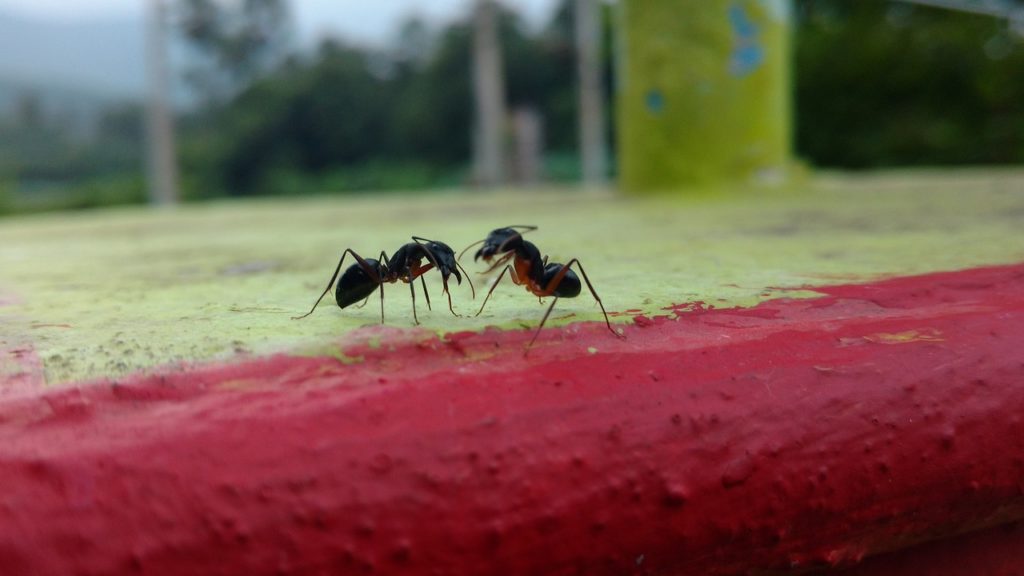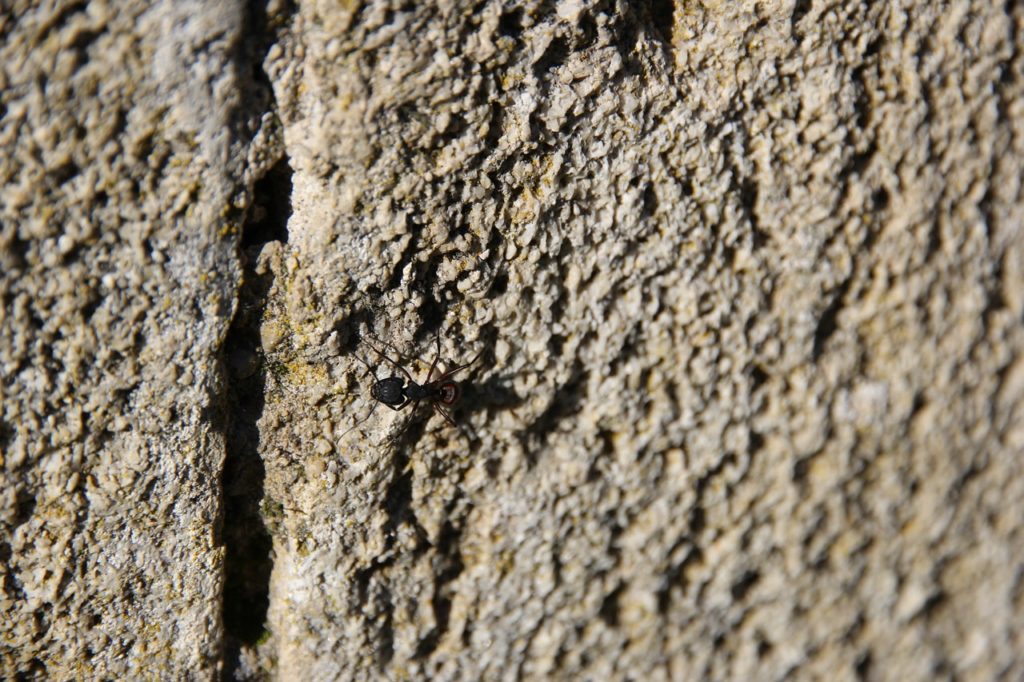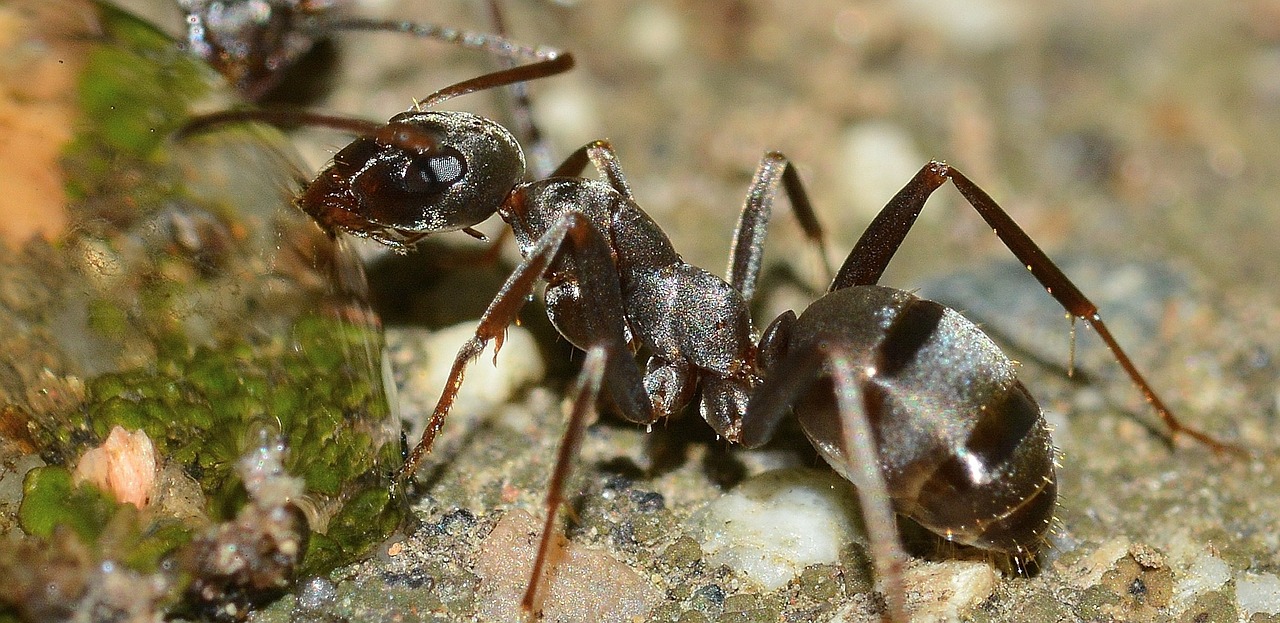There are a lot of ways to get rid of ants in your home. You can use ant baits to poison the ants. You can also use ant sprays to attack the nervous system of the ants and kill them. And ant repellents such as chalks should also not be overlooked.
But there are people who want to get rid of their ant problem using more natural remedies. If you are one of these people, you may have heard or read somewhere that you can use vinegar against ants. Now the question is, does vinegar actually work against these pests?
Yes, vinegar against ants can actually be very effective.
Vinegar can be the natural remedy you are looking for against ants
There are a number of natural remedies against ants, such as lemon, pepper, and of course, vinegar. What these natural remedies have in common is their strong smell. Ants can’t stand strong sour and bitter smells. This makes vinegar the perfect candidate to repel these pests.
The strong smell also disrupts the ants’ hunt for resources. Ants leave a scent trail, so their fellow ants can know where they are and where they get their food and water. If you put vinegar to the spots where you usually find the ants, you are masking this scent trail with the sour smell of vinegar.
This will make it harder for ants to track the scent trail and find the food and water sources their fellow ants have found. It’s a perfect DIY solution to your ant problem.
Also, you can directly pour or spray the vinegar to the ants to drown and kill them.

Create a vinegar and water solution
The great thing about using natural remedies against your ant problem is that they are a lot safer to inhale, compared to sprays and repellents that may have harmful ingredients. This is a serious advantage, especially if you have children at home.
But the smell of vinegar can also be overpowering and irritating. One way to reduce its smell is to dilute it in water. The water will help neutralize the sour smell, but not enough to render the resulting solution ineffective.
Your solution can be 50% vinegar and 50% water. You can put it in a spray bottle and spray it on surfaces where you often see the ants.
Spray the solution across surfaces
You don’t just randomly spray the vinegar and water solution across your home and expect good results. You have to spray the solution on strategic locations for it to be effective. Here are the most strategic surfaces you should use your solution on:
- Spray directly on the line of ants. If you see a line of ants, in your wall for example, you can spray your solution directly into it. This will kill some of the ants and disrupt the scent trail they have established in the line.
- Spray on your walls, especially those that have cracks and holes. Your walls are some of the most favorite passageways of ants. This is especially true if your walls have cracks and holes, as these cracks and holes connect your home’s interior to the outside world where the ants reside.
- Spray on the gaps between your doors and windows. The gaps and edges of your doors and windows may still be big enough to let ants pass through. Make sure to spray on these as well.
- Spray on surfaces that likely have food crumbs and water droplets. Cupboards, dining tables, and sinks, are just some of the surfaces where ants can get food and water. Spray on these surfaces so they don’t attract ants.
If you know where to spray your vinegar and water solution, you can minimize the spots where ants can thrive in your home. This may eventually drive them out completely.

Vinegar as a natural remedy also has disadvantages
Vinegar can be very effective against ants, especially if you know where to pour or spray it. But this doesn’t mean you can use vinegar as the be-all end-all solution to an ant infestation. Using vinegar also has a lot of disadvantages, such as the following:
- The smell can be intolerable. As mentioned earlier, the smell can be neutralized by diluting the vinegar in water. But this doesn’t mean that the smell is completely eradicated. The smell can still be intolerable to some people.
- The smell can wear off quickly and render the solution ineffective. The real power of vinegar as a natural remedy against ants comes from its strong sour smell. Once that smell wears off, vinegar’s potency against these pests goes down really quickly. It may also be quite troublesome to spray again and again to maintain the smell of vinegar.
- It can only get rid of scent trails. Vinegar is really good at getting rid of the ants’ scent trails. This makes it harder for the ants to find food and water. Indeed, it can be an effective approach in getting rid of your ant problem, because the ants may end up dying of hunger and thirst. But it may pale in comparison to more potent approaches, such as the use of insecticides that kill the ants directly.
- It may be ineffective against more serious ant infestations. You can say that using vinegar to get rid of ants is a conservative approach. Instead of killing ants directly, you are only ruining their methods of finding food and water. This conservative approach may not be very effective on more serious infestations. A more serious approach, such as the use of insecticides, may be necessary.
Yes, you can use vinegar against ants, but it’s not a perfect solution
If you want to DIY your way out of your ant problem, using a natural remedy such as vinegar is a good idea. The strong sour smell of vinegar is hated by ants, not to mention that it disrupts the scent trails of the ants when they are trying to find food and water.
But it also has its disadvantages. It is not as potent as other methods and can become ineffective if your ant problem is already serious.

